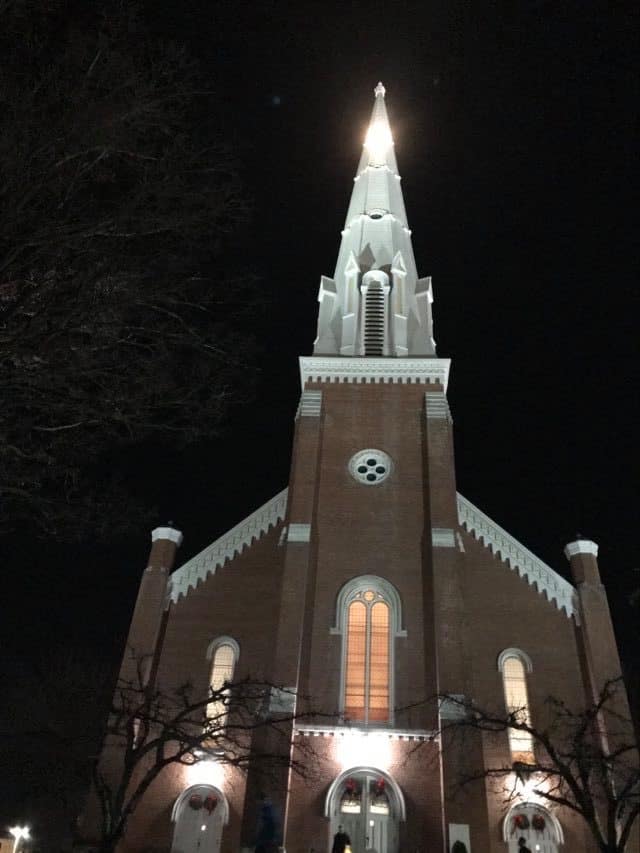By Peter D’Auria/VTDigger
In June, the U.S. Supreme Court issued a ruling in a case called Carson v. Makin, finding the state of Maine could not withhold public money from private religious schools simply because those schools might use the money for religious purposes.
In Vermont, which operates a tuition program that is similar to Maine’s, officials have been paying close attention. As the upcoming legislative session approaches, lawmakers and advocates are gearing up for a pitched debate over how best to respond to that ruling.
The question of religious schools is “one issue that continues to rise to the top, that people are talking about,” said Rep. Peter Conlon, D-Cornwall, the ranking member of the Vermont House Committee on Education.
In rural Vermont and Maine, students that live in towns without public schools can use state money to attend private schools elsewhere. For years, however, both states said that money could not be used at religious schools.
But in a series of rulings over the past few years, the U.S. Supreme Court has eradicated those prohibitions.
For many in Vermont, the prospect of public dollars going to religious schools is an uncomfortable one. For one thing, it raises concerns that private religious schools may discriminate against LGBTQ+ students or staff.
Vermont’s constitution also complicates the picture. The document contains a “compelled support clause” — language that protects Vermonters from being forced to support a religion that is “contrary to the dictates of conscience.”
“I believe the majority of Vermonters do not want public dollars going to religious schools,” said Sen. Brian Campion, D-Bennington, the chair of the Senate Committee on Education.
But it’s unclear what lawmakers will — or can — do to prevent that from happening.
One likely uncontroversial move would be to simply bar all independent schools, including religious ones, from discriminating against students and staff.
State rules already prohibit discrimination in both public and private schools. Earlier this year, lawmakers advanced, but did not pass, legislation that would have strengthened those protections, and some expect another attempt in the upcoming session.
Such legislation may not resolve the question of the Vermont constitution’s compelled support clause, however.
Another solution that has been discussed could be to require school districts to designate several private schools for their students to attend. Under that model, only the designated schools — which might have to follow certain rules — could receive public tuition dollars from the district.
But it’s unclear that such a model would be able to exclude all religious schools. And it would likely generate strong pushback.
Another even more controversial proposal would be to eliminate all public tuition to independent schools, or to limit it to only a handful of schools.
“To me, the big problem that the Legislature is going to face involves political and practical constraints,” said Peter Teachout, a constitutional law professor at the Vermont Law and Graduate School. “And one of them is that the state has become accustomed to providing parents from school districts without public schools of their own a wide range of choice, as to which private schools they can send their kids to and get tuition reimbursement for.”
Conlon, who is expected to be appointed the chair of the House Education Committee, said that Vermont’s tuition system “works well for the vast majority of students and taxpayers.”
“However, I think that the issue of transparency and oversight for those schools that are private and receiving taxpayer dollars will be a major topic,” he said. “Whether that results in a huge change for the vast majority of students or schools that receive taxpayer dollars, I’d say, remains to be seen.”
What’s clear is that some organizations are already gearing up for the session. A group calling itself the Education Equity Alliance — which includes representatives from the state associations of principals, superintendents, school boards, and teachers union — has hired the Necrason Group, a prominent Montpelier lobbying firm.
In a “values statement” released earlier this month, the alliance warned of “unanticipated, radical changes to our taxpayer-backed Education Fund” and called on lawmakers to draft legislation based on the values of equal opportunity and transparency.
“Vermont communities, taxpayers, K-12 students, and schools are now at a defining crossroads,” the statement reads.
Mill Moore, the executive director of the Vermont Independent Schools Association, said he expects a heated battle.
“Because now — instead of it appearing likely that religious schools were going to get money, and a few were actually getting it — now it’s been given the Supreme Court’s seal of approval,” Moore said with a new confidence.




